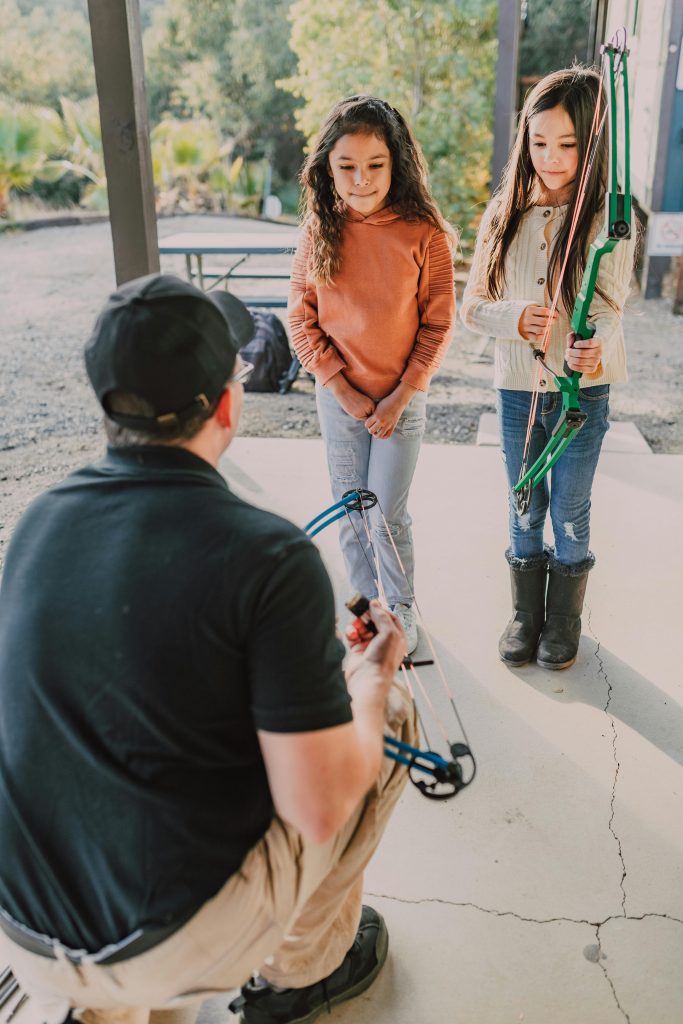
Ever had a fight end with, “This all goes back to my childhood!”? Turns out, it’s not just an excuse. Early experiences profoundly impact how we approach and navigate romantic relationships. Let’s explore three key ways your past whispers into your present love life:
1. The Blueprint of Bonding: Attachment Styles
Imagine your childhood relationships as an architect’s blueprint for future connections. These early bonds shape your “attachment style,” influencing how you seek and experience intimacy. Here are the main styles:
Secure
Secure: Like a sturdy house, you feel comfortable exploring while confident your “anchor” (think parents) will be there. You’re calm, trusting, and open to trying new things.
Anxious
Anxious: Picture a nervous explorer constantly checking back with their base. You crave closeness but fear rejection, leading to clingy behavior or avoiding opportunities for fear of being abandoned.
Avoidant
Avoidant: Imagine a lone wolf, wary of getting too close. Past hurts might make you push others away, appearing aloof or even dismissive.
Fearful
Fearful: Like a guarded fortress, you oscillate between wanting intimacy and fearing it due to past neglect or abuse. This results in confusing mixed signals of both closeness and distance.
2. Emotional Baggage: Unpacking Childhood Hurts
Just like carrying a heavy backpack on a hike, unresolved childhood issues can weigh down your relationships. Unhealed wounds like neglect, abuse, or unhealthy family dynamics can manifest as:
Difficulty trusting others: Past betrayals might make it hard to believe in genuine love and support.
Communication problems: If healthy expression wasn’t modeled, you might struggle to communicate effectively or set boundaries.
Low self-esteem: Negative childhood experiences can chip away at your self-worth, impacting how you connect with others.
3. Repeating the Cycle: Breaking Unhealthy Patterns
Sometimes, we unconsciously reenact unhealthy childhood patterns in our relationships. For example, a child raised in constant conflict might find themselves drawn to dramatic partners or recreate that dynamic in their own relationships. Recognizing these patterns is crucial to break free from them.
Remember, understanding your past doesn’t define your future. With self-awareness and potentially professional help, you can rewrite the narrative and build healthier, happier relationships.
The Invisible Compass: How Your Childhood Shapes Your Relationships
The early years paint a powerful picture on the canvas of our lives, especially when it comes to love and connection. It’s during this delicate time that we form our attachment style, a kind of internal compass guiding how we navigate relationships.
Insecure Attachment Styles
Imagine a tiny sailboat bobbing on the waves. The security of its mast and rigging, built by caregivers in infancy, dictates how confidently it ventures out. Responsive, attuned guardians create a sturdy mast, fostering a secure attachment where trust and independence flourish. Unpredictable or neglectful caregiving weaves a weaker mast, leading to insecure attachment styles like anxious (craving closeness but fearing rejection) or avoidant (distancing oneself to avoid potential hurt).
Emotional Journey
But don’t despair! While early experiences leave fingerprints, they aren’t permanent tattoos. As adults, we can embark on a journey of re-learning. Positive experiences with loving partners, supportive friends, and even therapists can serve as new winds, propelling us towards a more secure harbor.
Charting Your Course
Wondering which attachment style guides your ship? Self-reflection and online quizzes can offer initial insights. But delving deeper into your childhood family dynamics, perhaps with the help of a qualified professional, can paint a clearer picture. Remember, understanding your attachment style is only the first step. The real power lies in harnessing this knowledge to navigate relationships with greater awareness and intention.
Puzzles….
Remember: Attachment styles are just one piece of the puzzle. Open communication, empathy, and a willingness to learn and grow are crucial ingredients for nurturing fulfilling relationships. So, raise the sails, adjust the rudder, and embark on your personal voyage towards secure shores!
Beyond Templates
Relationship templates, rigid blueprints of “normal” relationships, can sometimes hinder our growth. Instead, embrace the beautiful messiness of real connection. Allow your unique experiences and values to guide your interactions, fostering authentic and fulfilling bonds.
Hidden Scripts
How Early Experiences and Self-Perception Shape Our Relationships
Imagine your mind as a sponge, soaking up the world around you from a young age. This includes the dynamics of relationships you witness, both in real life and through the fantastical lens of media. These early observations weave themselves into intricate scripts, forming the foundation of your expectations for love and connection as you grow older.
Rules
Let’s call this phenomenon “osmotic learning.” Just like osmosis, where a weaker solution absorbs properties from a stronger one, your developing brain unconsciously picks up the “rules” of relationships. You observe how people interact when happy, angry, or conflicted. You absorb how apologies are given, and when to walk away. This creates a mental framework for how you expect to be treated, and how you’ll navigate your own interactions.
Dynamics
The quality of these observed relationships plays a crucial role. If you’re surrounded by positive, respectful connections, you’re more likely to mirror that behavior in your own partnerships. However, exposure to unhealthy dynamics, like neglect, control, or abuse, can lead to repeating those patterns or attracting similar behavior in relationships. Interestingly, in some cases, witnessing unhealthy dynamics can have the opposite effect, pushing individuals away from such patterns and towards healthier connections.
Movie Industry
But the scripts don’t stop there. Fairytales and romantic comedies, with their damsels in distress and charming princes, weave another layer into the mix. These narratives can paint an unrealistic picture of love, downplaying the importance of genuine connection and fostering “love with being in love” rather than a grounded understanding of real-world relationships. Think of “Sleepless in Seattle,” “Pretty Woman,” or even “Romeo and Juliet” – these stories contribute to our often-exaggerated perception of how love unfolds.
Your Self-Concept
However, the most influential script might be the one you write about yourself. Your self-concept, encompassing your self-image, self-worth, and ideal self, shapes your choices and influences who you attract. An inaccurate or incomplete self-perception can lead you to connect with incompatible individuals, causing frustration and disappointment in your relationships.
Rewrite your Script
To build healthy and fulfilling connections, it’s crucial to recognize and rewrite these hidden scripts. Reflect on the relationships you witnessed, challenge unrealistic expectations, and cultivate a clear, confident understanding of who you are and what you deserve. Remember, your relationships are a journey, not a predetermined story. By consciously rewriting the scripts, you can navigate this journey with intention and create connections that bring true joy and fulfillment.
Understanding Yourself: Building Blocks for Healthy Relationships
Self-Worth: The Compass Within
Imagine your self-worth as an internal compass, guiding your confidence, optimism, and how you navigate connections. A healthy balance is key – too positive and you might appear self-absorbed, too negative and insecurity might creep in. Both can affect your ability to build fulfilling relationships.
Knowing Yourself: The Foundation
The seeds of self-awareness are sown in childhood. Understanding your values, desires, and how you envision healthy relationships lays the groundwork for your journey. Remember, growth is continuous, so don’t worry if these definitions evolve over time. Embrace new learning and self-discovery throughout your life!

Ideal Self: Vision and Motivation
Your “ideal self” is the aspirational vision you hold for yourself. When your goals and reality align, you’re on the path to self-actualization and valuing yourself positively. However, a seemingly unattainable ideal self can lead to discouragement. Stay mindful, adjust your goals if needed, and celebrate your progress along the way.
Discovering Your Passions: Unique Connections
Hobbies, interests, and talents help you connect with others who share your spark. Whether it’s board games, meditation, or juggling, exploring these passions puts you in situations to meet like-minded individuals. Plus, identifying activities you don’t enjoy helps refine your search for compatible partners.
Crafting Your Story: Embracing Your Journey
Acknowledge and embrace your unique story, from its beginnings to the chapters you’re writing now. This self-awareness empowers you to create the ending you’re proud of. Remember, important lessons and healthy attitudes can be learned and re-learned throughout your life. You are the author of your narrative, and every chapter holds valuable self-discovery.
About Cassandra Abram: Your Guide on the Path
Cassandra’s coaching approach is warm, insightful, and grounded in trauma-informed practices and mental health awareness. She empowers individuals and couples to understand themselves and others better, develop effective communication skills, and set achievable goals at their own pace. With expertise in LGBTQIAP+ dynamics and non-monogamous relationships, Cassandra creates a safe space for diverse identities and experiences.
Conclusion
Remember, the road to healthy relationships starts with understanding yourself. Embrace your journey, explore your passions, and allow Cassandra to guide you with kindness, knowledge, and a focus on your unique story.


Your point of view caught my eye and was very interesting. Thanks. I have a question for you.
Your point of view caught my eye and was very interesting. Thanks. I have a question for you.
Your article helped me a lot, is there any more related content? Thanks!
Thank you for your sharing. I am worried that I lack creative ideas. It is your article that makes me full of hope. Thank you. But, I have a question, can you help me?
Your article helped me a lot, is there any more related content? Thanks!
F*ckin’ remarkable things here. I’m very glad to see your post. Thanks a lot and i am looking forward to contact you. Will you kindly drop me a mail?
Can you be more specific about the content of your article? After reading it, I still have some doubts. Hope you can help me.
Your article helped me a lot, is there any more related content? Thanks!
Can you be more specific about the content of your article? After reading it, I still have some doubts. Hope you can help me.
I don’t think the title of your article matches the content lol. Just kidding, mainly because I had some doubts after reading the article.
Can you be more specific about the content of your article? After reading it, I still have some doubts. Hope you can help me.
Thank you for your sharing. I am worried that I lack creative ideas. It is your article that makes me full of hope. Thank you. But, I have a question, can you help me?
I don’t think the title of your article matches the content lol. Just kidding, mainly because I had some doubts after reading the article.
Thank you for your sharing. I am worried that I lack creative ideas. It is your article that makes me full of hope. Thank you. But, I have a question, can you help me?
Thanks for sharing. I read many of your blog posts, cool, your blog is very good.
Your article helped me a lot, is there any more related content? Thanks!
Pingback: discount androxal canada over the counter
Pingback: cheapest rifaximin prices
Pingback: kamagra du mexique sans ordonnance
Pingback: purchase enclomiphene price from cvs
Pingback: ordering dutasteride cheap uk
Pingback: online order flexeril cyclobenzaprine cost insurance
Pingback: price gabapentin
Pingback: purchase itraconazole uk online
Pingback: buy fildena with no rx
Pingback: buy staxyn uk order
Pingback: buying avodart mastercard buy
Pingback: get free sample of xifaxan
Pingback: kamagra australské náklady